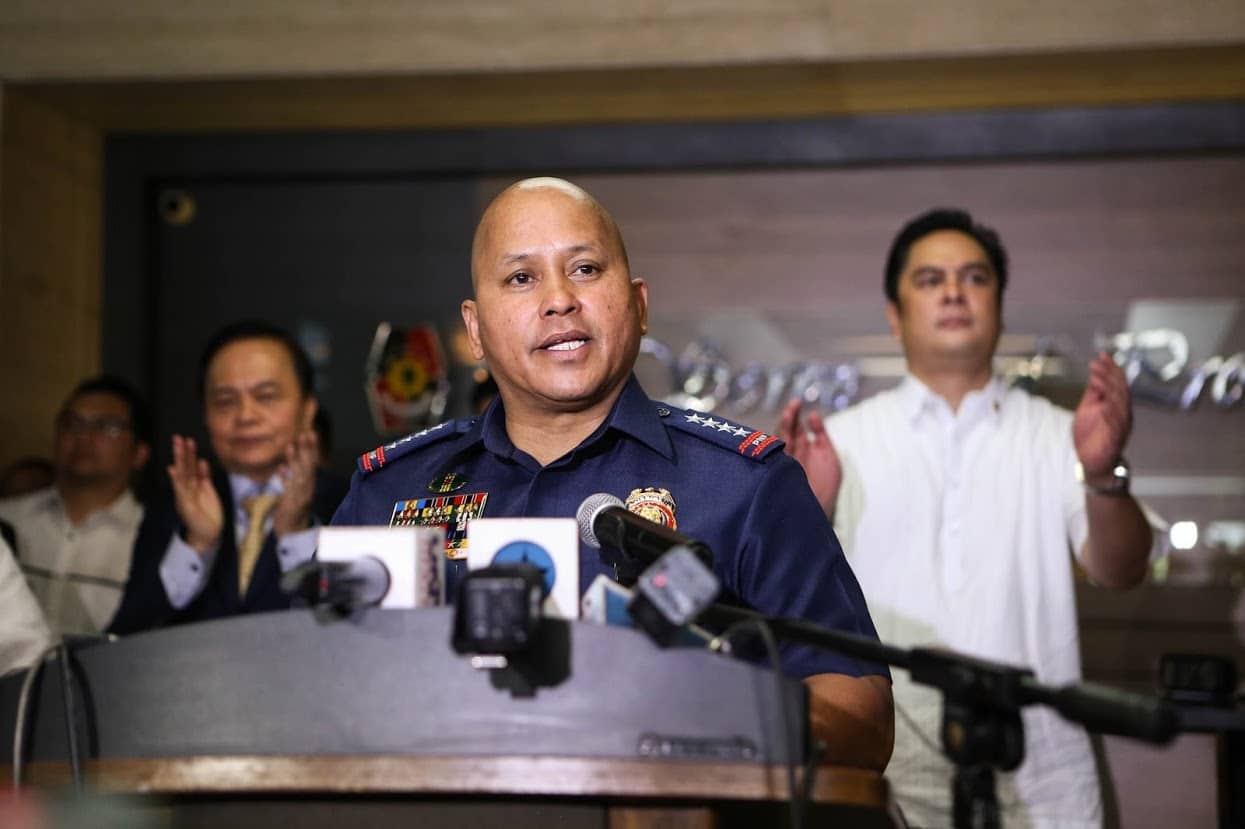Philippines officials involved in the country’s bloody drug war and a subsequent crackdown on opposition are finally facing official condemnation and repercussions from the United States. The drug war—including extrajudicial killings of people suspected to use or sell drugs by both law enforcement and vigilantes—was estimated by the country’s Human Rights Commission to have caused as many as 27,000 deaths by December 2018. It began in 2016.
On January 8, the US Senate agreed to a resolution that condemns, among other things, the state-sanctioned killings and the detention of Philippines Senator Leila De Lima, a prominent critic of the drug war. The resolution also called on President Donald Trump to impose sanctions on implicated security forces and government officials. A few weeks prior, Trump had signed a spending bill that banned officials “involved in the wrongful imprisonment” of De Lima from entering the US.
Among the Philippines officials who have now been denied US visas is Senator Ronald “Bato” dela Rosa, dubbed the “architect” of the violent crackdown led by President Rodrigo Duterte. On January 22, Dela Rosa told reporters that he believes the denial of his visa is because of his involvement in extrajudicial killings, rather than the detainment of De Lima.
It seems as though he was anticipating this. Dela Rosa missed a July 2019 boxing match in Las Vegas “because I might just be barred and be embarrassed. I had been hearing rumors even prior to the fight,” he told reporters in December, just a week before Trump signed the bill blocking his colleagues.
Dela Rosa holds aggressively prohibitionist views. “Everything pertaining to drugs, we have to end them,” he said in one televised interview. “I also want to end the problem with drugs. It should be that strict when it comes to drugs.”
In response to Dela Rosa’s barring, Duterte has threatened to discontinue a military agreement between the two countries. “No more bases. They have to start to talk to us because they have to go,” he said on January 23, referring to the Visiting Forces agreement. “It’s fine for their [US] soldiers to come in and out of our territory,” he complained, “while a senator of this Republic is barred from entering their territory due to their intentions of tinkering with our domestic affairs.”
The tension between the US and the Philippines represents a change of pace for Trump and Duterte. In 2017, the US president said that the pair had a “great relationship” after a meeting in which the Philippines drug war was briefly discussed.
Trump “appeared sympathetic and did not have any official position on the matter and was merely nodding his head, indicating that he understood the domestic problem that we faced on drugs,” said Duterte spokesman Harry Roque at the time. “The issue of human rights did not arise; it was not brought up.”
The United Nations turned its attention to the Philippines’ drug war in July 2019, when the UN Human Rights Council voted to conduct an investigation. Activists described that move as being long overdue.
Harm reduction groups in the Philippines have continued their work amid the atrocities, as Filter has reported.
Photo of Senator dela Rosa by Philippines Presidential Communications Operations Office via Wikimedia Commons.




